Janelle
Expanding Health Plan Coverage for Employees During COVID-19
As an employer, you can afford better protection for your employees by making specific health plan changes, such as: Offering a mid-year enrollment window to employees who had not opted for a cover in the previous window. Foregoing certain eligibility requirements for employees that have been laid off, such as active service or minimum hours of work. FSAs, HSAs and HRAs
How to Work From Home and Be Productive During COVID- 19
Many organizations have asked their employees to work from home in the COVID- 19 pandemic to minimize social contact and prevent the spread of the coronavirus. However, if you have never worked from home before, it may be a challenging proposition. Below are some tips on living in your home during COVID- 19 and working to make the transition easy: Set a Schedule
COVID-19 – Federal Laws Affecting Health Care
The Families First Coronavirus Response Act (FFCRA or Act) Effective March 18, 2020, the Families First Coronavirus Response Act (FFCRA) requires group health plans and health insurance issuers to cover COVID-19 testing without imposing any cost sharing (such as deductibles, copayments or coinsurance) or prior authorization or other medical management requirements. This coverage mandate applies to the following health plans
Malpractice Concerns Amplified for Providers on Coronavirus Front Lines
A shortage of acute care doctors and nurses to care for patients suffering from COVID-19 has forced many medical professionals to assume new roles and responsibilities. They are working long hours treating an unprecedented volume of gravely ill patients, often in unfamiliar settings and with insufficient personal protective gear. Many are forced to make life-and-death decisions due to shortages of
Coronavirus and Managing Remote Work Cyber Risks
Given the implications of the coronavirus (COVID-19) outbreak, countless employees across a variety of industries are working remotely. While this allows businesses to remain operational, it can create a number of risks, particularly for those who fail to take the proper precautions. Above all, information security is one of the greatest challenges for companies allowing remote work during the COVID-19








